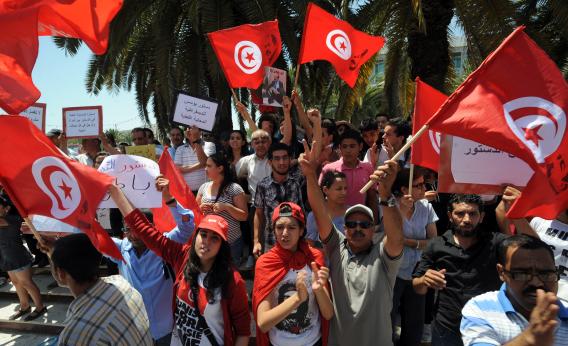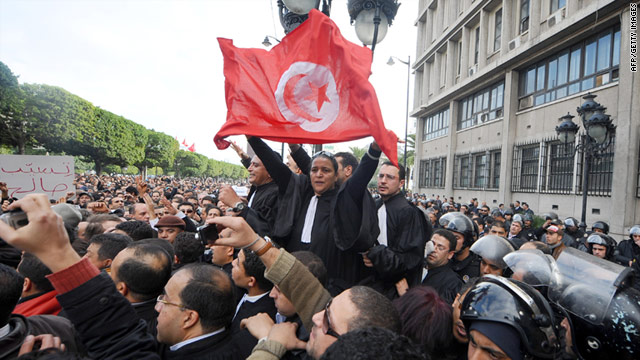Angry protesters set fire Wednesday to the office of Tunisia’s ruling party in the neglected Gafsa region, as strikes were observed in areas amid rising discontent and political deadlock.
Angry protesters set fire Wednesday to the office of Tunisia's ruling party in the neglected Gafsa region, as strikes were observed in areas amid rising discontent and political deadlock.
in areas amid rising discontent and political deadlock.
Hundreds of demonstrators attacked the Ennahda party's headquarters in the poor central region after trying to break into the governor's office, where they were dispersed by police firing tear gas.
The protesters seized files and furniture from the office and burned them on the road, while preventing firemen from gaining access to the building, and with no immediate sign of the police.
"The people want the fall of the regime," and "The people of Gafsa are a free people," were among the slogans chanted.
As in the other regions of Gabes and Siliana, Gafsa ground to a halt Wednesday as a general strike was called to protest against poverty and lack of development.
Those were driving factors behind the popular uprising nearly three years ago that toppled former strongman Zine El Abidine Ben Ali, and which continue to plague much of Tunisia, whose sluggish economic recovery has failed to create jobs or spur regional development.
A number of similar protests have resulted in regional offices of Ennahda being attacked, including last month in the towns of Beja and Kef.
Gafsa is a key strategic area because of its phosphate mines but remains among the poorest in Tunisia despite its natural wealth, and witnessed anti-government protests in 2008, under Ben Ali, that were savagely repressed.
Since the revolution, production has slumped because of disruptions caused by strikes and protests, and despite thousands of people being hired in the state-run sector as part of government efforts to defuse social tensions.
The catalyst for the industrial action in Gafsa and Gabes was the government's decision not to include it in the list of regions where five new university-linked hospitals are to be built.
